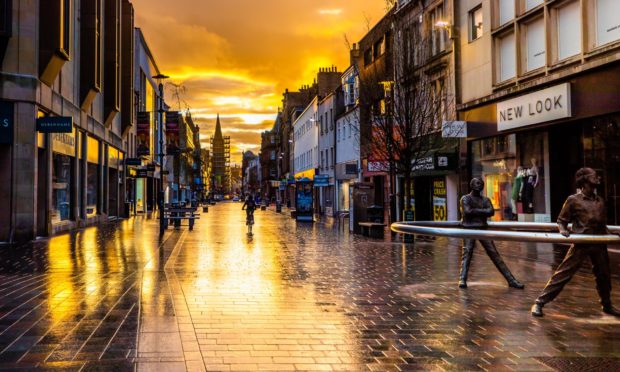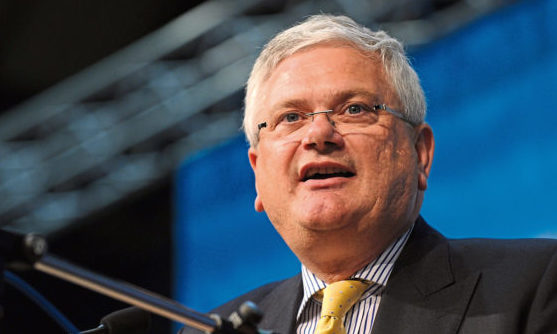Scotland is on the verge of passing the “sombre and deeply distressing” milestone of 5,000 Covid deaths, Nicola Sturgeon has warned.
The first minister said there must be no let-up in the fight against the virus when she announced the north and north-east is to be spared tightening of measures when large swathes of the central belt are plunged into the most severe restrictions for three weeks from Friday.
Aberdeen and Aberdeenshire will remain in level two for the time being while Highland, Moray and the islands will stay in level one, the most relaxed arrangement under the Scottish Government’s five tier system.
It is very likely, based on the numbers we have reported in the past seven days, that the death toll on that wider measure will this week pass 5,000. That is a sombre and deeply distressing milestone.”
Nicola Sturgeon
Dundee, Angus, Fife and Perth and Kinross will stay in level three, meaning residents will face spot fines for breaching travel restrictions that prevent them from straying outside their local authority areas.
Making a statement to Holyrood, Nicola Sturgeon announced that the travel restrictions for those in level three and four will become law on Friday, despite opposition concerns about how a ban will prove workable or be enforced.
North East Lib Dem MSP Mike Rumbles described the travel restrictions as “draconian” and “unenforceable” and called for them to be debated by parliament before they are introduced.
Ms Sturgeon said fines would only be issued as a “last resort” when there had been a “flagrant” breach of the rules.
In more remote communities, there was some relief for those living in the level one areas of Highland, Moray, Orkney, Shetland and the Western Isles with a slight relaxation of the rules for meeting outdoors.
From Thursday people in those areas will be allowed to meet outdoors with up to eight people from a maximum of three households. Currently the limit is six people from two households.
Ms Sturgeon said the decisions taken were informed by the mounting death toll and the need to ensure the NHS can cope during the winter. She also said imposing the restrictions now increased the chance of easing them at Christmas.
A further 37 Covid deaths had been recorded over the last 24 hours of patients who first tested positive in the last 28 days.
Under that measurement, the total number of Scottish deaths stands at 3,323.
But in a few hours’ time, the National Records of Scotland (NRS) will publish its weekly report of deaths confirmed as Covid-related through a test as well as fatalities that are presumed to be related to the virus.
“It is very likely, based on the numbers we have reported in the past seven days, that the death toll on that wider measure will this week pass 5,000,” Ms Sturgeon said.
“That is a sombre and deeply distressing milestone. It is important we acknowledge it and remember every individual whose life has been lost to this virus.”
‘More vital to abide by all the rules’
Ms Sturgeon urged the public to “hold firm” on the restrictions, arguing they would save lives and were necessary until the “brighter times” now in sight with the development of a vaccine.
Last week Ms Sturgeon had signalled that Aberdeenshire could be placed in level three, but, in the end, it was decided the council area should stay in the second tier, alongside Aberdeen City, Argyll and Bute, the Borders and Dumfries and Galloway.
But she warned there was concern about “quite sharp increases” in cases in Aberdeen and Aberdeenshire.
Nevertheless, it was hoped those areas in level two “will be able to move to level one soon”, particularly Argyll and Bute.
Ms Sturgeon made a specific plea to people living in the less restricted areas in level one and two.
“Please don’t assume that being in one of the lower levels means you can ease up,” the first minister said.
“On the contrary, having fewer restrictions mean that the virus has more opportunities to spread – so it is more vital to abide by all the rules and precautions.”
Level four restrictions will be imposed in Glasgow, Renfrewshire, East Renfrewshire, East Dunbartonshire, West Dunbartonshire, North Lanarkshire, South Lanarkshire, East Ayrshire, South Ayrshire, Stirling and West Lothian.
The measures, which come into force from 6pm on Friday, will run until December 11 and sparked anger from businesses with CBI Scotland describing them as a “body blow” in the run up to Christmas.
The move to level four means as well as non-essential shops, bars and restaurants will have to close – though takeaways will be permitted – along with visitor attractions, hairdressers and gyms.
The City of Edinburgh, Clackmannanshire, Falkirk, Inverclyde and North Ayrshire, will stay at level three for now, while East Lothian and Midlothian will buck the overall trend by moving from level three to level two.

